Nearly half a century ago, while studying journalism, I first learned about a very new concept: Syllogism. This is a basic concept in Logic. It is a form of deductive reasoning, including two premises (major premise, minor premise) and a conclusion, in which the conclusion is deduced from the two premises. Until now, I still remember the example my teacher gave: “The unknown causes panic. The future is unknown. So the future causes panic.”
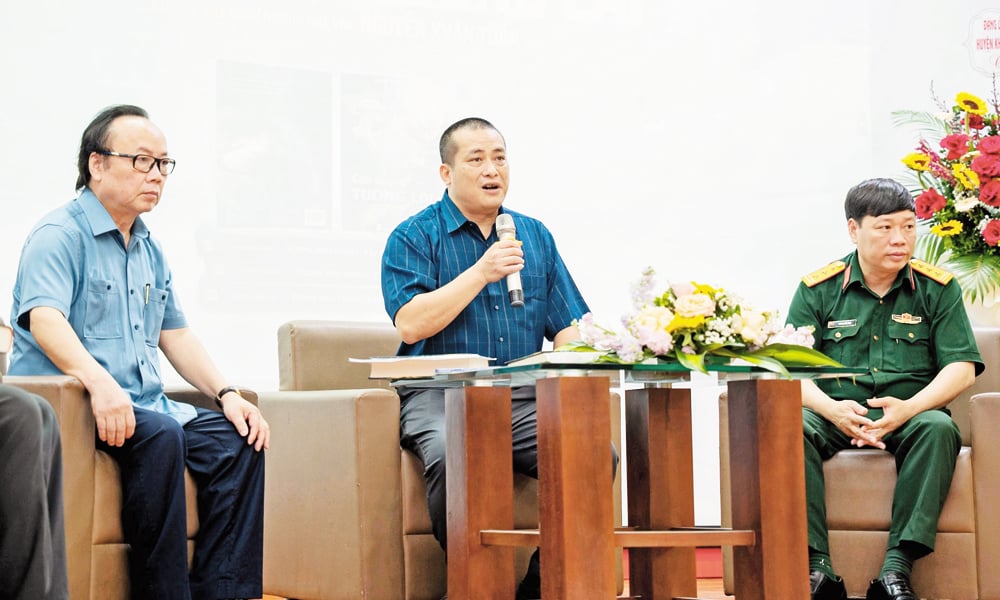 |
Author Nguyen Xuan Tuan at the book launch "The Road to the Future". |
The major and minor premises are easy to accept, but the conclusion that “the future causes panic” seems a bit forced. And then the endless debates lasted throughout the course, of course, it followed us throughout our decades of journalism. The future cannot cause panic if instead of just predicting, people actively create it, which is true to historical materialism. That is when we remembered the saying of US President Abraham Lincoln (1809-1865): “The best way to predict the future is to create it.”
It was very interesting that one day in the middle of summer 2025, we read a big book “The Road to the Future” by a research group, written by researcher and writer Nguyen Xuan Tuan. This work, as the name suggests, does not only predict and create the future in a few arguments, but is a system of comprehensive, synthetic views, discussing the future of the Vietnamese nation.
| I remember the story of the great intellectuals who reformed the country at the end of the 19th century. They all had in common the passion for the fate of the nation, finding every way to revive the country. Today, we "reform the country" with innovative and integrated thinking, because of the desire for independence and sustainable development. As the work suggests: Absorbing the quintessence of humanity while still maintaining identity is very important. The golden key to grasp is Knowledge and Talent, so that the country can develop prosperously and happily. |
The research work of Nguyen Xuan Tuan and the group of authors of the Learning and Reading Society Project is a rich treasure trove of documents with valuable knowledge of humanity. That knowledge includes all fields, politics , economics, culture, history, diplomacy...; integrating from East and West, past and present, is both a "monolithic" knowledge foundation and hot knowledge and information in the palm of the hand, as the group of authors have surveyed and researched through dozens of countries on all continents. Theory and practice, past and present, what has happened and is happening, predicts the opportunities and challenges of our country on the threshold of the Era of Rising, starting from the 14th National Congress of the Party, which will take place in early 2026.
According to the research works collected, summarized and forecasted by the group of authors, it can be said that we can basically know what the future will look like, through scientific forecasting and by participating in practical reform and creating the future. In this part, the book has stated quite clearly in the chapters and sections: "What will the future of humanity be like in the next 500 to 5,000 years?"; "Model of sustainable economic development and economic risk management in the new era"; "The "universal" key to open the treasures given by heaven"...
When publishing the research work "The Road to the Future", with nearly 1,000 pages of books, according to our monitoring and synthesis analysis, although there was no prediction of a specific date when a job or major event would end, there were many predictions and proposals from the group of authors that went ahead of the strategic policies of our Party and State. That is the policy of building a two-level local government. That is the National Governance Strategy in the New Era, in which the group of authors wishes to compile a book "The Great Electronic Book". To successfully govern the country, "society is not only a subject in governance, but also a source of essential resources for development". That is how to make society develop harmoniously, warm inside and peaceful outside, and prevent financial, cultural and social risks.
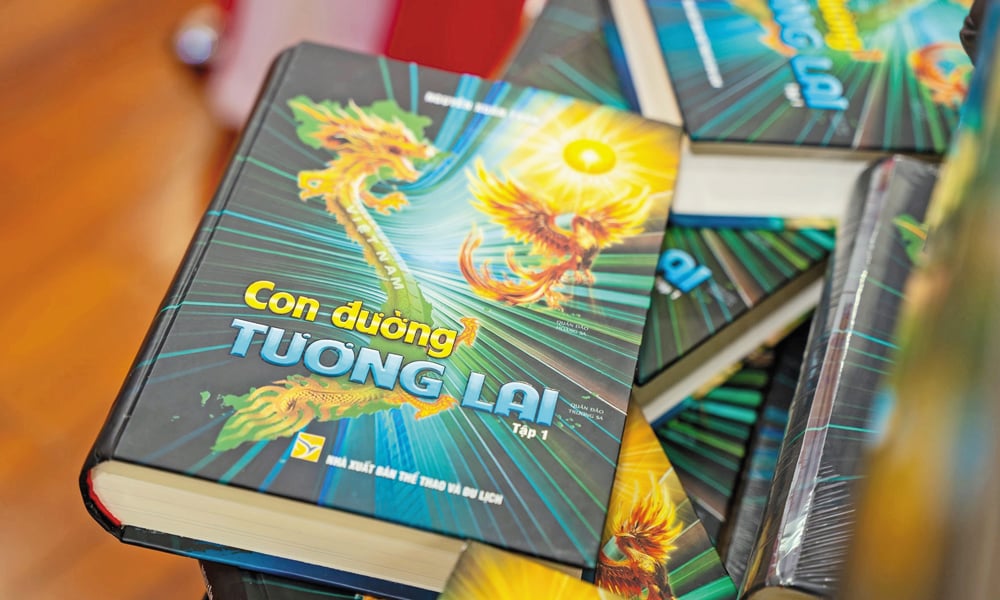 |
Work "The Road to the Future" by Nguyen Xuan Tuan and group of authors. |
I am particularly interested in the solution of “clearing” when implementing projects, it is necessary to reclaim the roadways with houses facing the road at “cheap prices”, causing injustice. There are many ways, such as clearing parallel roads, keeping the old roads intact; auctioning off plots of land to form new roadways, not creating “lucrative frontages” for the homeowners inside, while the houses on the outside are damaged. That is how to arouse the intelligence and national spirit in the new era, from the “Dien Hong Conference” to the “Sustainable National Council”. That is a very big problem, building a socialist society with Vietnamese characteristics, unlike China, unlike the Western democratic model... So what must the political institution of this unique model be like to clear all bottlenecks? The group of authors affirmed that there cannot be a binary answer here, but only a relative answer, the answer depends on the specific circumstances, on each specific stage. This is how the researchers explained: “On a big road, there are always many small roads. Every road must have a solid foundation, be reinforced, and continuously improved... In which, the big road is built by the Party and the State; the small roads are built by the people, including intellectuals, businessmen, workers, economic, social, and cultural sectors who all contribute to its construction” (page 967).
***
Reading "The Road to the Future", as many readers have commented, is a massive work, containing a large amount of knowledge, a lot of new information from the past to the present and predicting the future. Reading words and reading literature, reading to find bright spots, new points in thinking, helping us to position ourselves, reflect, change our concepts, that is the intoxication and the beauty of reading. This heavy book in both literal and figurative senses makes us intoxicated, not tired, like someone climbing a high-rise building but occasionally having "rest stops". That rest stop is the fascinating stories from culture, religion, spirituality to stories behind the green bamboo hedge, street stories, stories of the poor days of the author's group of friends (Tuan, Bac, Nam) with many ups and downs in life. That rest stop is the way of narrating, the way of telling stories, the characters "expressing their views" with common details.
The old saying goes, “A wise man knows how to ask, a knowledgeable man knows how to answer.” Here, readers are invited to participate in the story with questions and answers like that, small thoughts but big ideas, the big story starts from the confidences of “xe om” drivers with university degrees. Nguyen Xuan Tuan raises a question that makes us startled: Should we change the names of universities to vocational training schools, for example, training in journalism instead of University of Journalism, training in Information Technology instead of University of Science and Technology, similarly training in teachers, training in doctors. The number of 12% of “xe om” drivers currently having graduated from university, even having a master’s degree, 26% having a college degree or higher, needs to be further investigated. Of course, every profession in society is valuable, “no one is boring in this world”, don’t judge a fish by its ability to climb a tree, but it is clear that it is time for us to seriously consider changing our educational philosophy. It is a process of adjusting our views, ideas about the goals, methods and content of education to meet the new requirements of society and human development. This change may include moving from traditional education to modern education, focusing on developing personal capacity, soft skills and critical thinking, instead of simply imparting knowledge. If we don’t do that, we will forever be lagging behind the world.
A large-scale research project, a prelude to the next volume "The Road to the Future - New Era" is being actively prepared, and could be written in an academic style. But Nguyen Xuan Tuan and his colleagues have chosen a more "intimate" way of expression, so that any passerby can visit that house, from the man in the high hat and long dress to the village teacher and the locksmith, because everyone has something to read. The new content will naturally find a new form. And fortunately, this new form is suitable for the writer Nguyen Xuan Tuan's nature. Not only is it a resting place in a building, but visitors also have the opportunity to board a luxury ship crossing the ocean to new horizons, carrying with them a strong belief: The future belongs to us!
"The Road to the Future" is a very valuable research work as we stand on the threshold of the New Era. This can be considered a very valuable book, especially for managers, strategists, and public service practitioners. I remember the story of the great intellectuals who reformed the country at the end of the 19th century, typically Pham Phu Thu, Dang Huy Tru, Nguyen Truong To... They all had in common a passion for the fate of the country, seeking every way to revive the nation. Despite their different approaches, they all aimed for a more independent, strong, and civilized Vietnam.
Today, we “renovate the country” with innovative and integrated thinking, for the aspiration of independence and sustainable development. As the work suggests: Absorbing the quintessence of humanity while still preserving national identity is very important. The golden key to grasp is Knowledge and Talent, for the country to develop prosperously and happily.
Source: https://baobacninhtv.vn/tuong-lai-thuoc-ve-chung-ta-postid424622.bbg




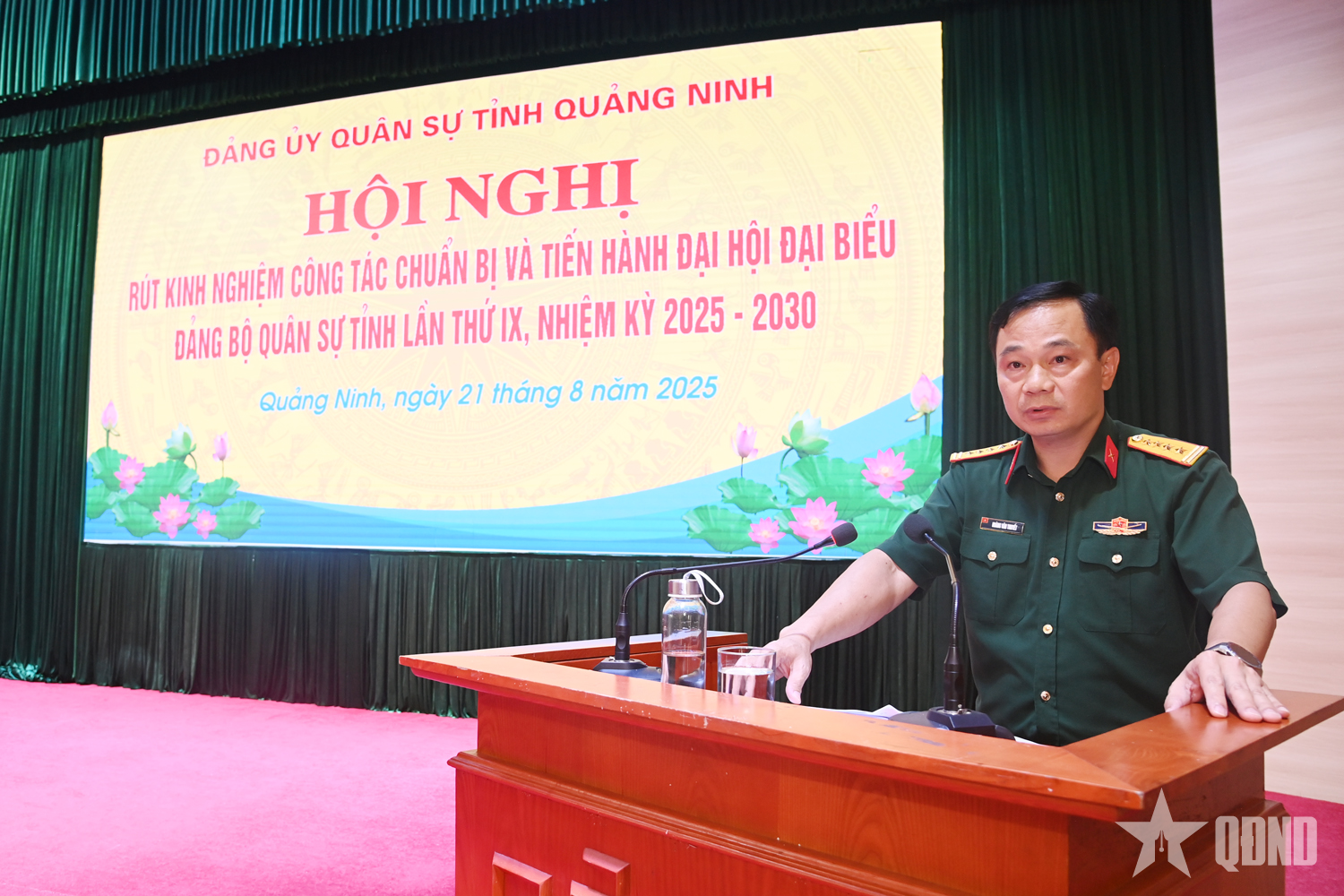
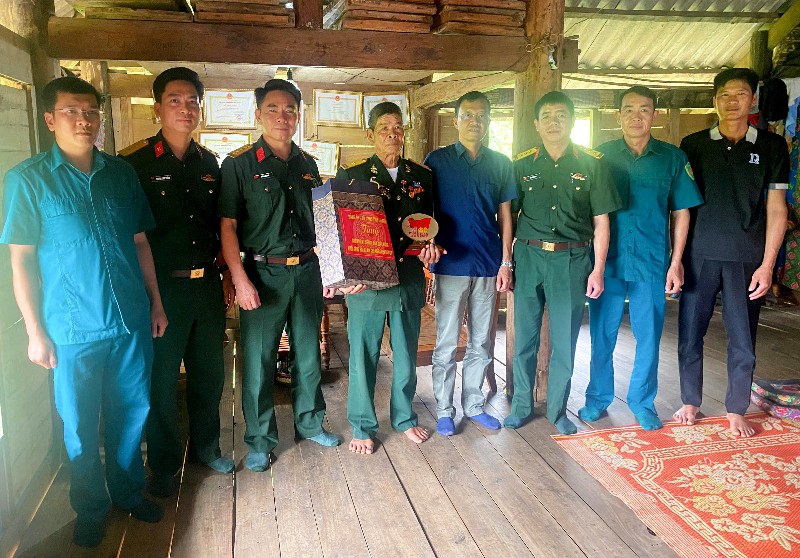
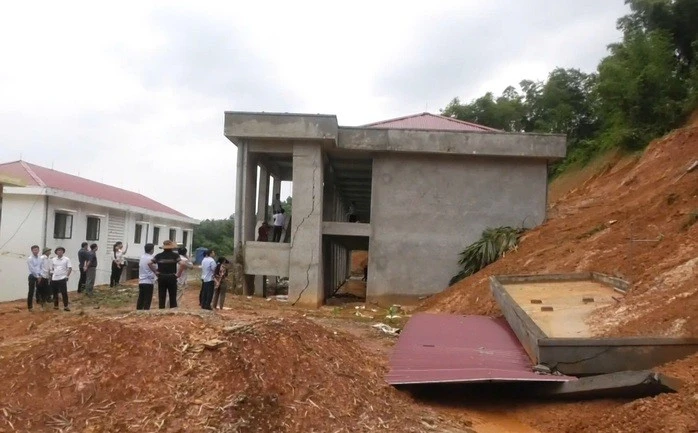
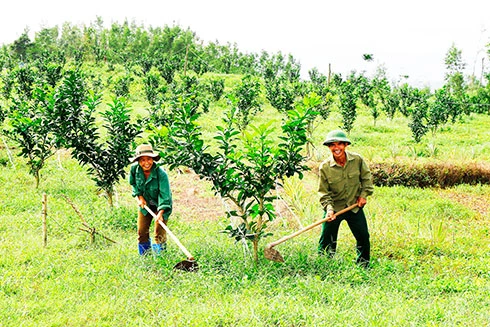
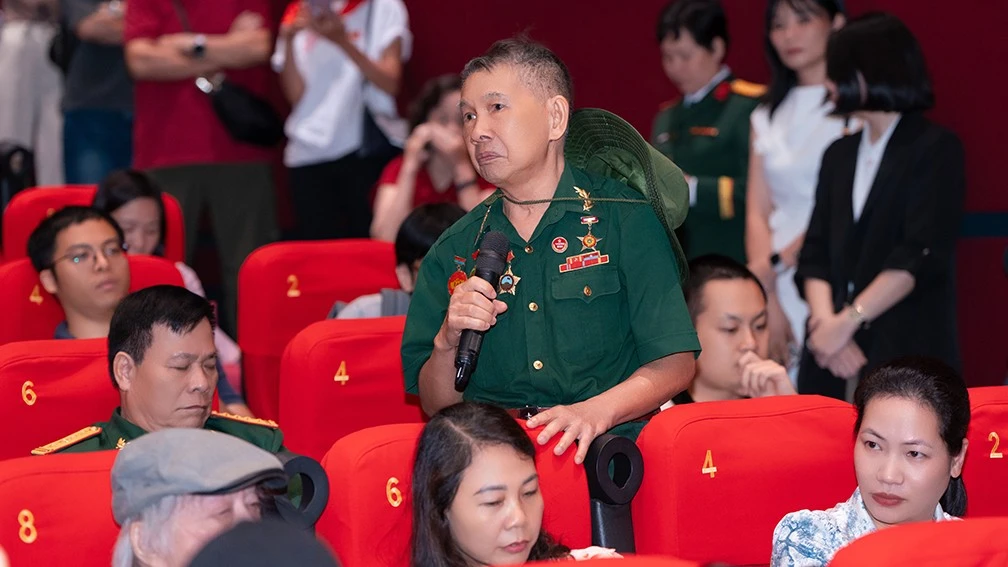
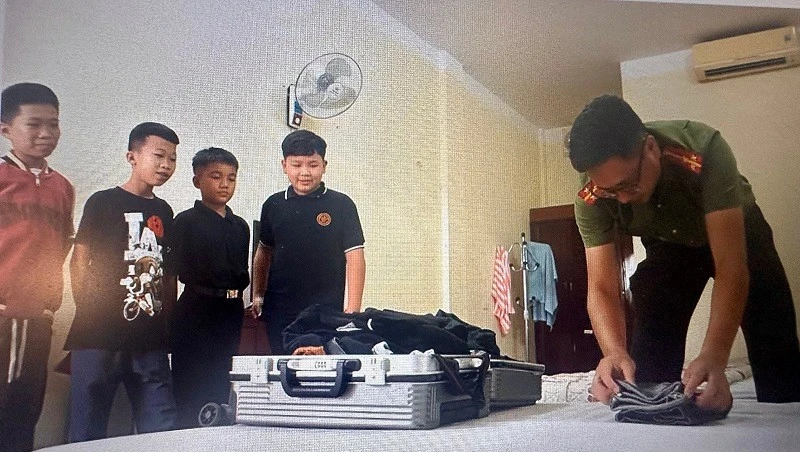
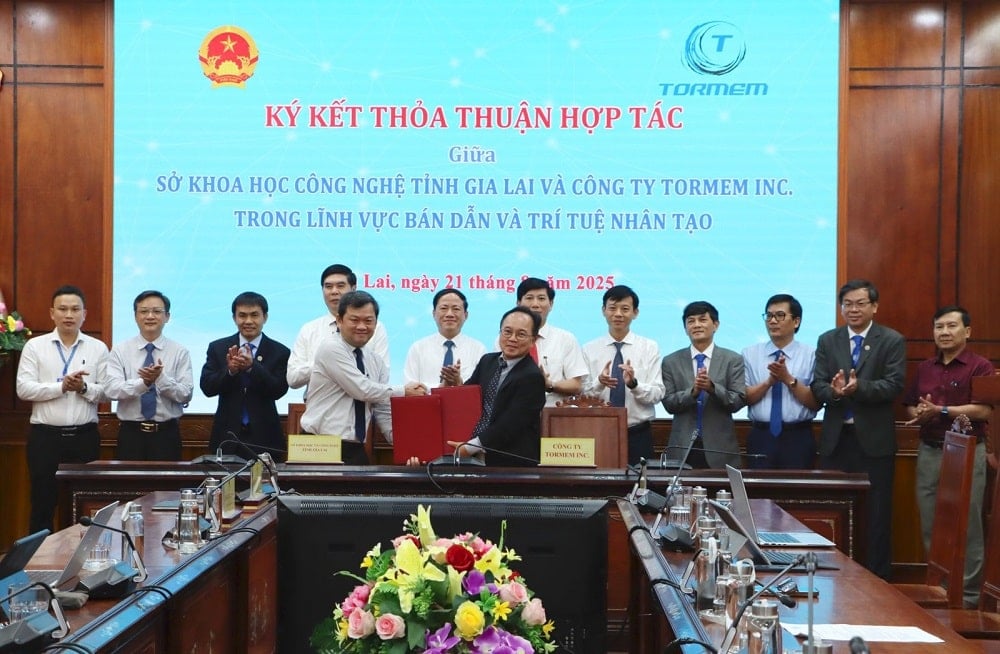
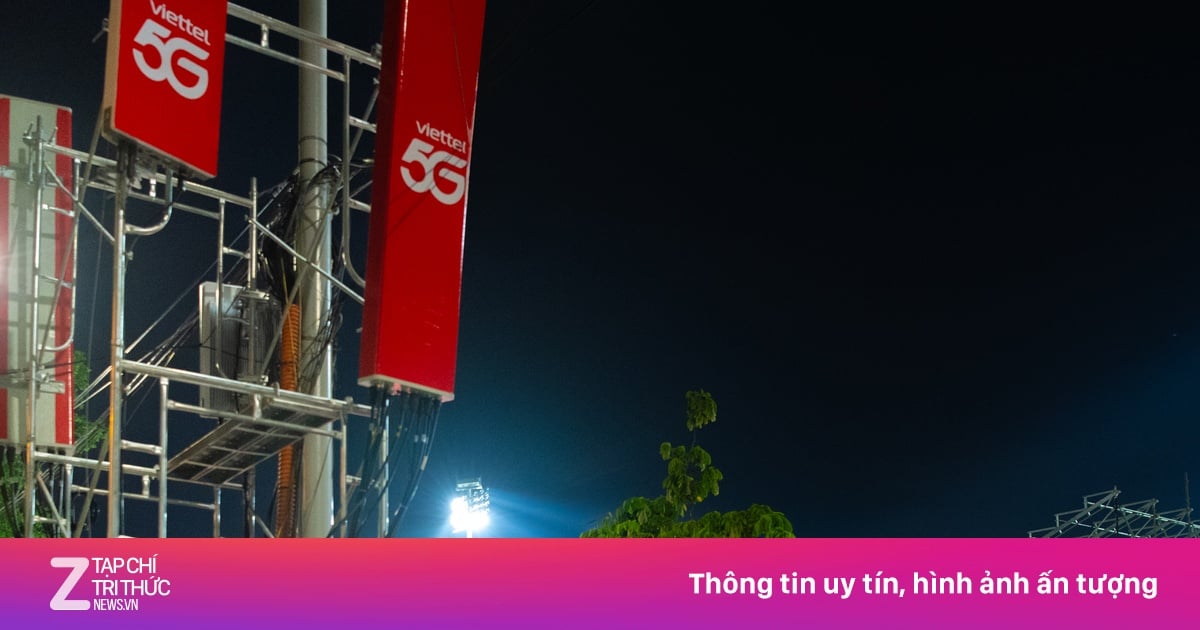
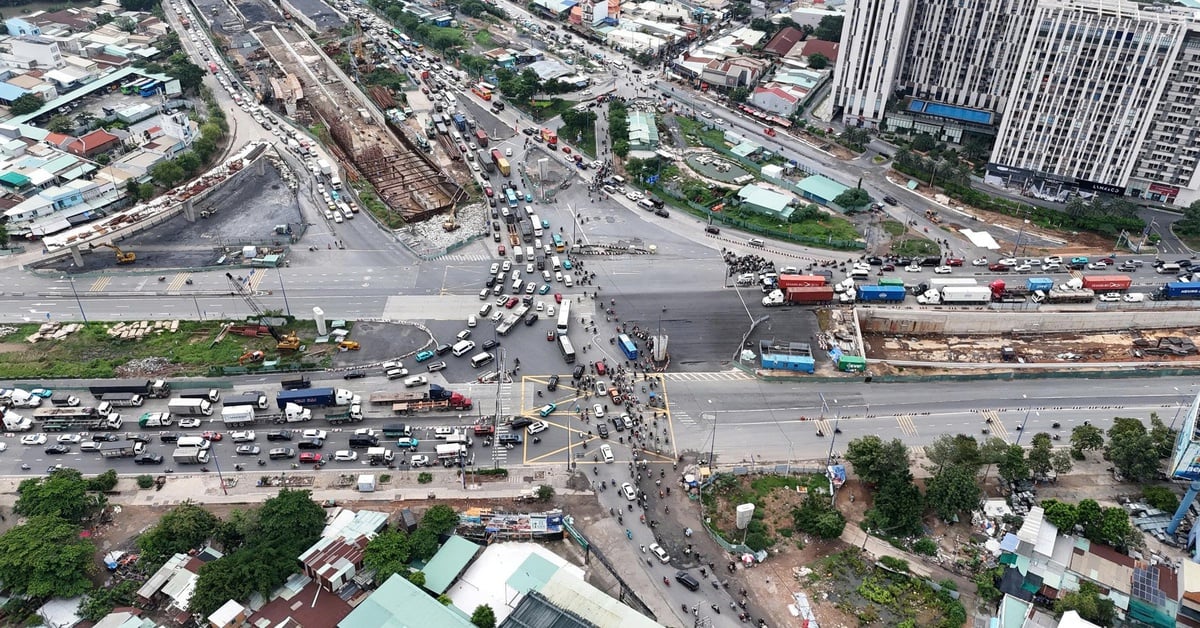











![[Photo] Prime Minister Pham Minh Chinh receives Australian Foreign Minister Penny Wong](https://vstatic.vietnam.vn/vietnam/resource/IMAGE/2025/8/20/f5d413a946444bd2be288d6b700afc33)


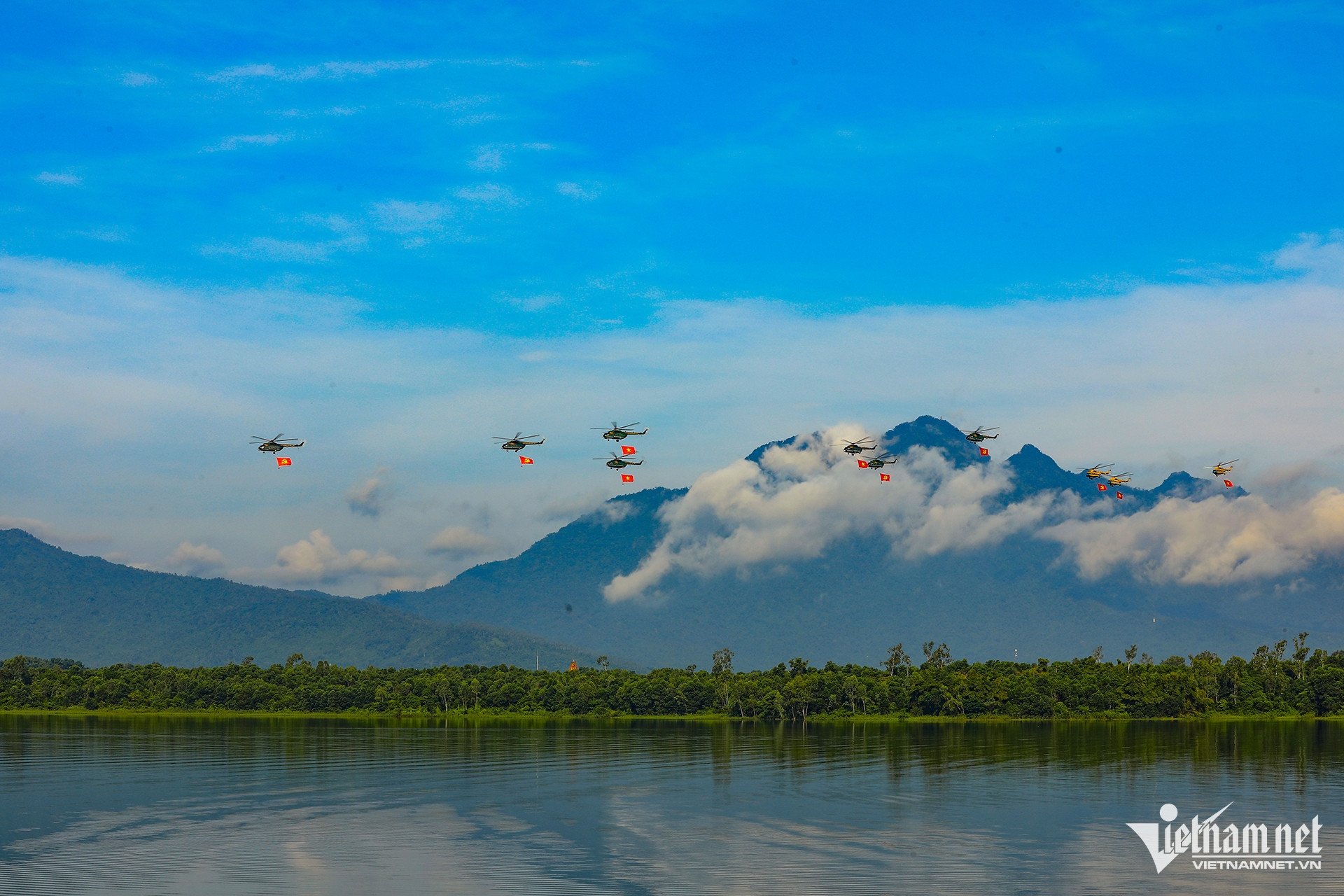

![[Photo] An Phu intersection project connecting Ho Chi Minh City-Long Thanh-Dau Giay expressway behind schedule](https://vstatic.vietnam.vn/vietnam/resource/IMAGE/2025/8/21/1ad80e9dd8944150bb72e6c49ecc7e08)
![[Photo] Politburo works with Standing Committees of Lang Son and Bac Ninh Provincial Party Committees](https://vstatic.vietnam.vn/vietnam/resource/IMAGE/2025/8/20/0666629afb39421d8e1bd8922a0537e6)
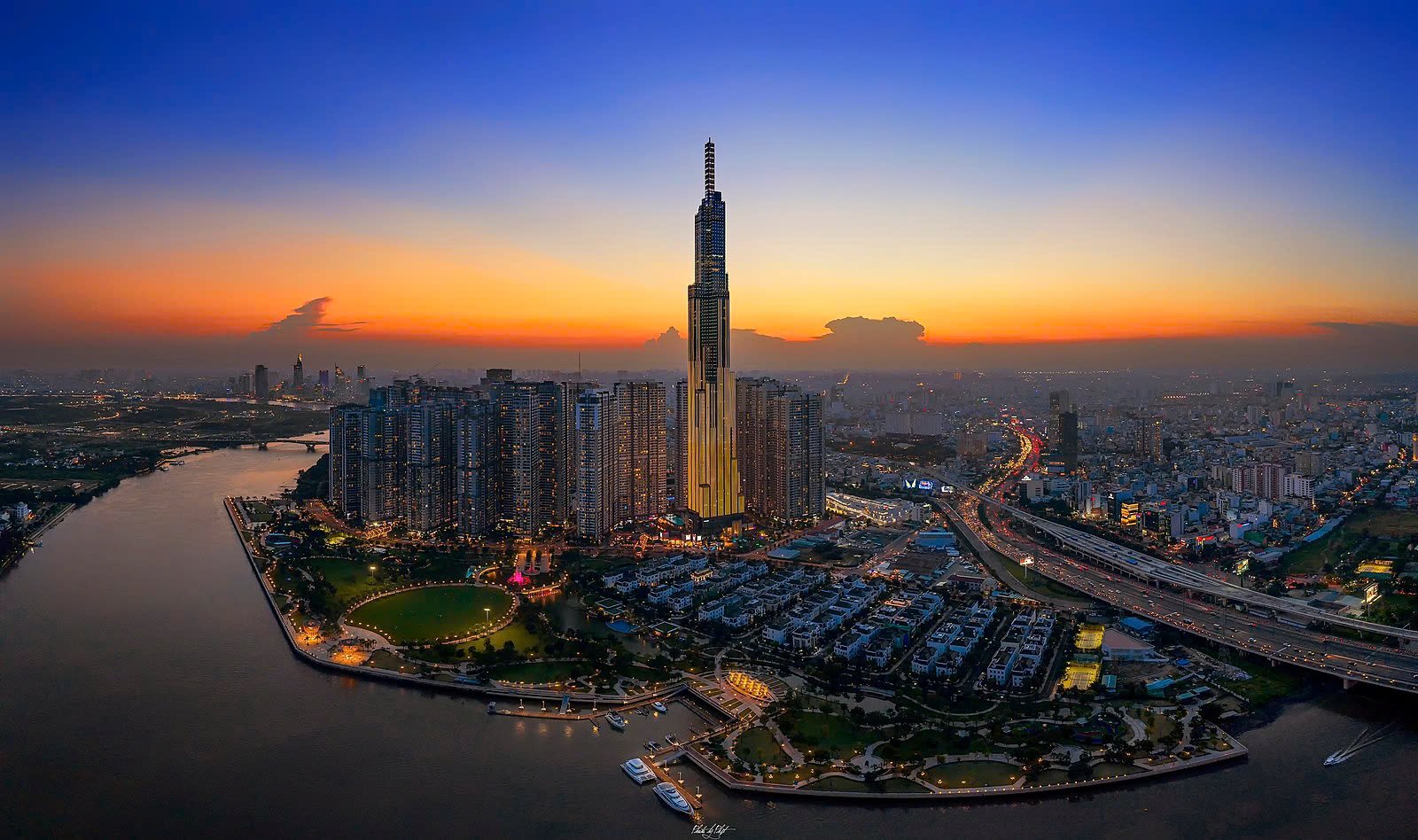






























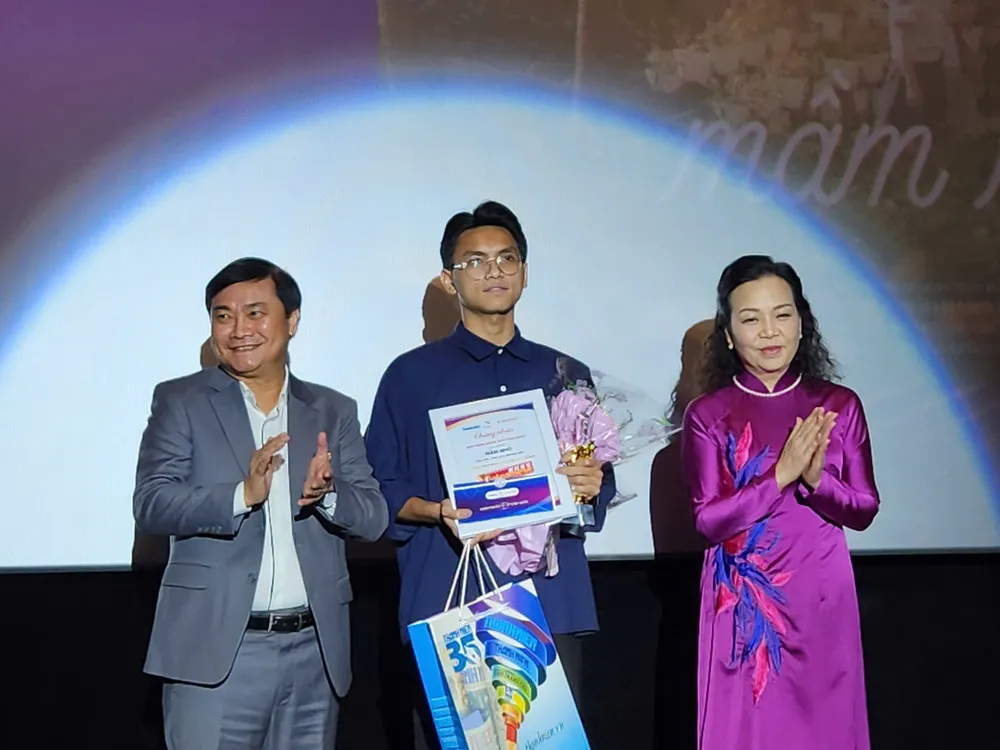
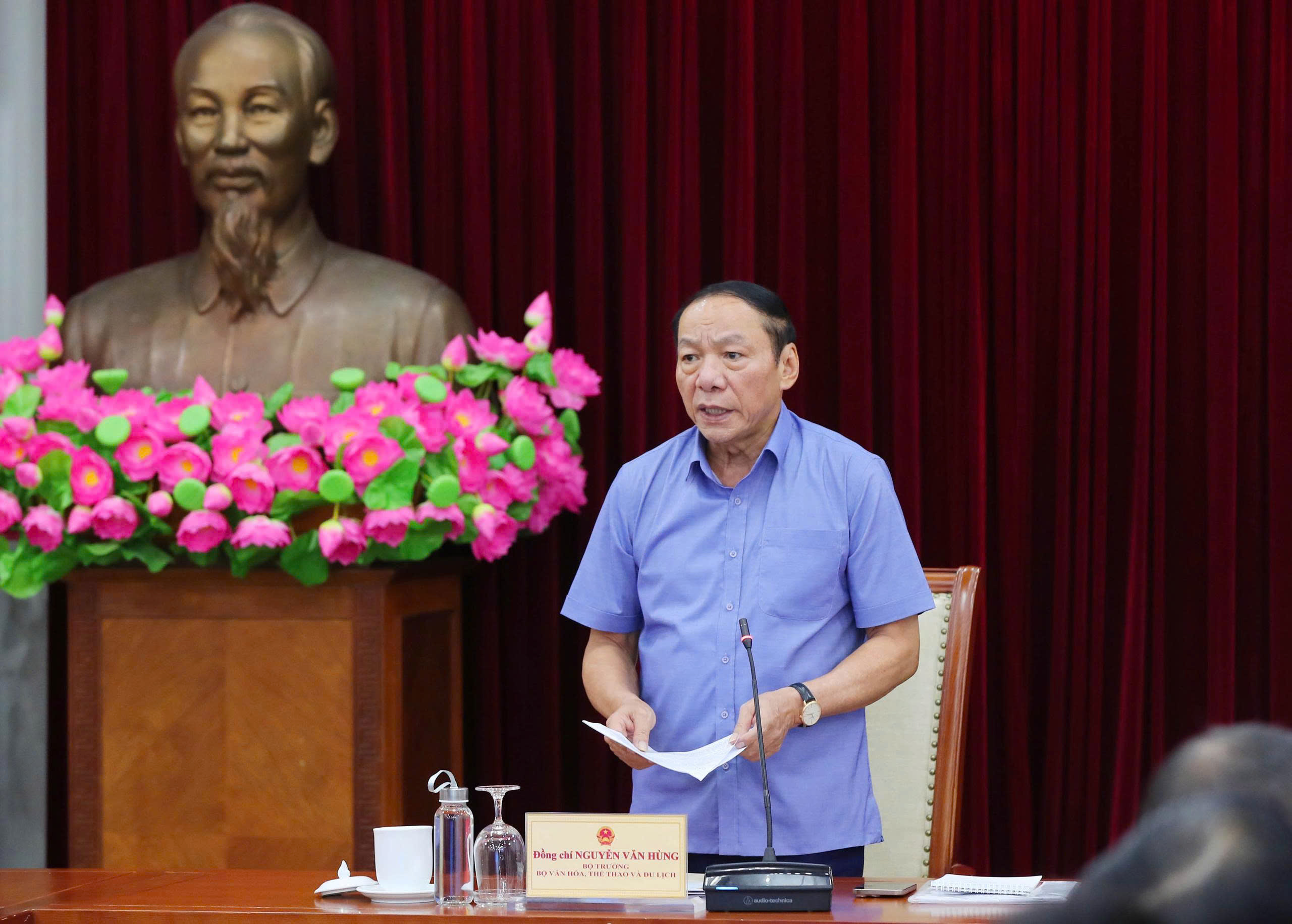
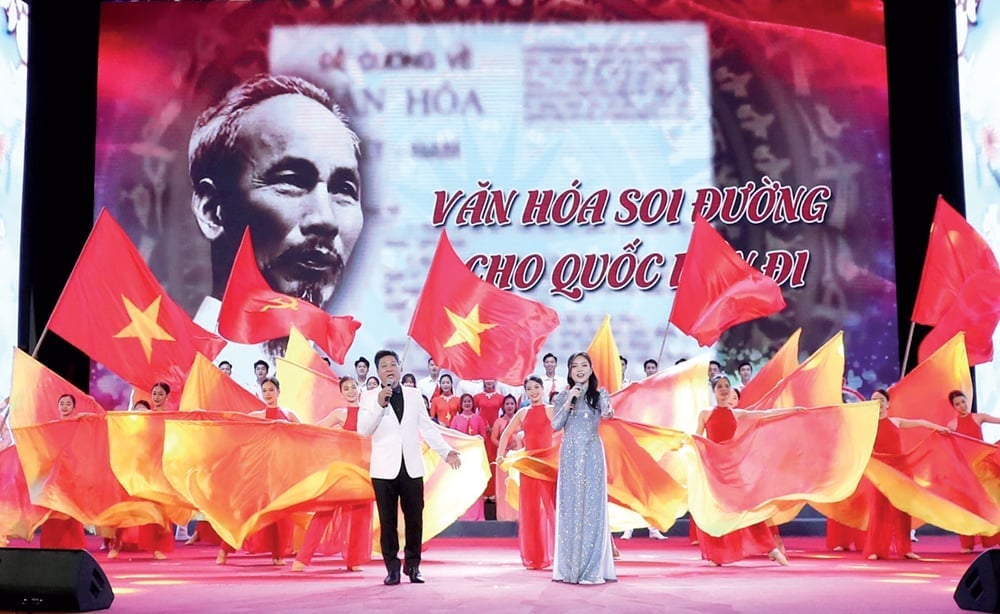

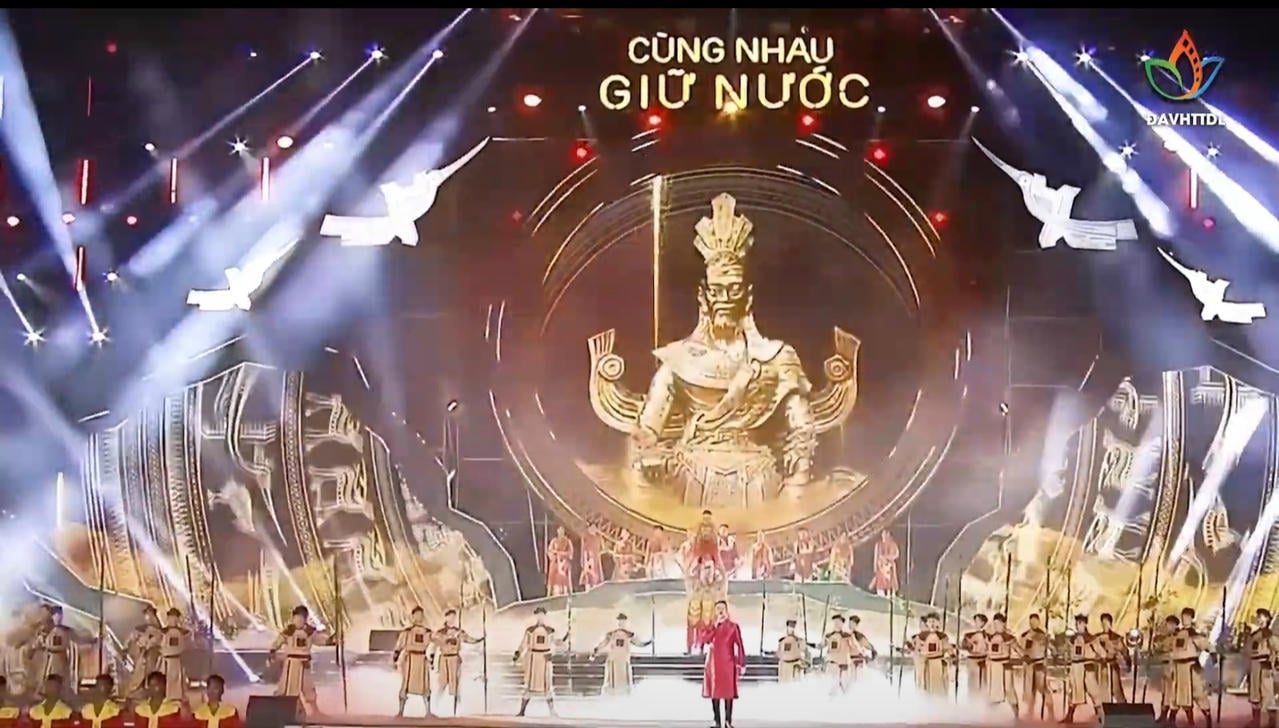








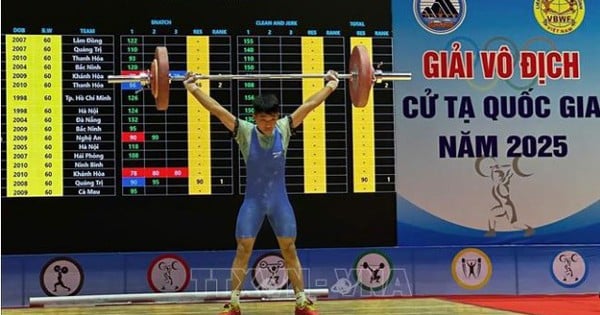























Comment (0)